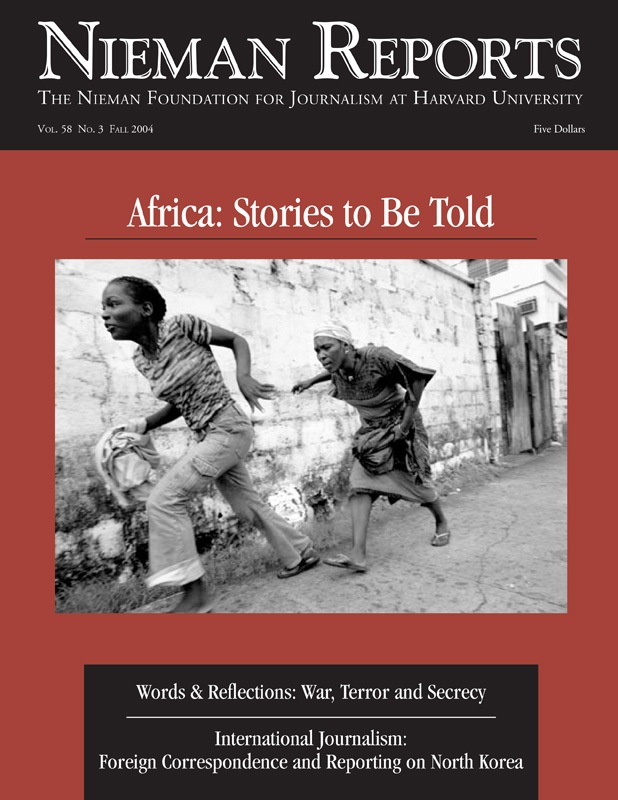The Times Union special section involved a series of short stories written by Paul Grondahl. A story follows:
Two thousand hungry villagers have been sitting cross-legged in the red dirt for four hours, still as statues, pressed tightly, shoulder to shoulder. Men on one side, women on the other.
Word has spread that Americans will deliver food today to Madisi, a village on the brink of starvation and reeling from a cholera outbreak a few days earlier.
A flatbed truck drives up with cases of canned green beans sent by a U.S. donor.
Transporting free food from a relief distribution program. Malawi, March 2003. Photo by Steve Jacobi/Times Union.
Suzi Stephens of the Malawi Project arrives.
“Mama Suzi,” as the Malawians call her, receives a rock star’s ovation. Men stand and applaud. Women make shrill trills with their tongues that sound like a melodic war whoop. The crowd parts and Mama Suzi wades through.
The throng queues up in long, orderly rows. Mama Suzi begins passing out 6-pound, 10-ounce cans of Crest Top Blue Lake Green Beans. One can per person.
Village elders stop her. They huddle, confer and show her a list of 284 names, the most needy cases, mostly widows and orphans.
Tradition dictates that the neediest are served first. The elders call out each name. There is a pause as each moves to the front of the line.
Just then, the skies let loose. A hundred battered umbrellas snap open. A monsoonal downpour turns the red dirt clearing into a lake the consistency and color of butterscotch pudding. The lines stay straight and orderly.
Boys dig bugs from the muddy hillside and pop them into wet mouths, their tattered clothes streaming with rainwater. “A Malawi shower,” they call it.
There are enough green beans to give one can—one meal for a family—to about half the crowd. Hundreds of others return to their huts, wet and hungry.


